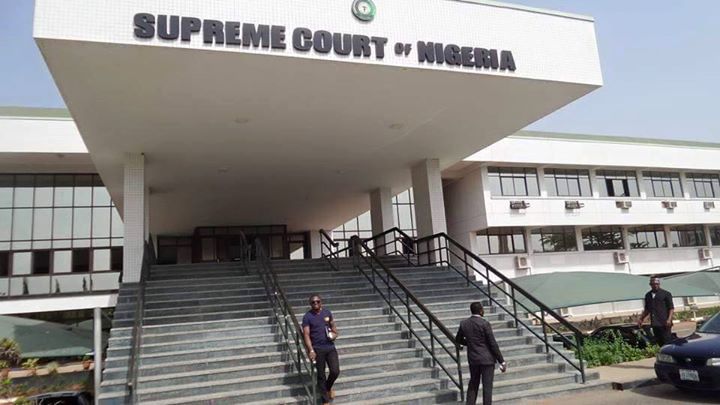Stephen Ukandu, Umuahia
Despite the rejection of the old currency notes in most parts of the country, the Supreme Court, Wednesday, maintained that its earlier order restraining the Central Bank of Nigeria, CBN, from the full implementation of the naira re-design policy subsisted.
The apex court insisted that the old currency notes were still legal tenders until the motion before it on the matter was determined.
Counsel to the Kaduna, Zamfara and Kogi State Governments (Plaintiffs), Abdulhakeem Mustapha (SAN), had gone back to the apex court to complain that the Federal Government and CBN had not complied with the earlier order of the court.
Meanwhile, the Supreme Court had adjourned hearing in the suit banning the use of the old naira to Wednesday, 22nd February 2023.
This is coming after nine states joined the suit initially filed by Kogi, Kaduna and Zamfara states.
The states are Katsina, Lagos, Cross River, Ogun, Ekiti, Ondo and Sokoto states bringing the new total number of plaintiffs to ten.
Meanwhile, Edo and Bayelsa States have filed to be joined as respondents.
The seven-man panel led by Justice John Okoro ordered them to amend their processes to be heard as one.
But speaking during the proceeding, Mustapha said the apex government and its agencies have allegedly directed the rejection of the old notes thereby failing to comply with the February 8 court order.
According to him, the plaintiff filed a notice of non-compliance with the order of the court made on February 8.
“The order has been flouted by the government. We are talking of executive lawlessness here. We have filed an affidavit to that effect… We want the court to renew the order for parties to be properly guided,” he said.
Justice Okoro asked Mustapha to file a proper application and put forward his complaints. This, he said, would enable the respondent to respond appropriately.
According to Okoro, there was no need for a renewal of the court’s order since the order made by the court on February 8 was made pending the determination of the motion for injunctions filed by the plaintiff.
Justice Okoro maintained that the order still subsists since the motion was not yet heard.
There has been protests in parts of the country over the scarcity of the new currency and biting economic hardship it has imposed on citizens.

